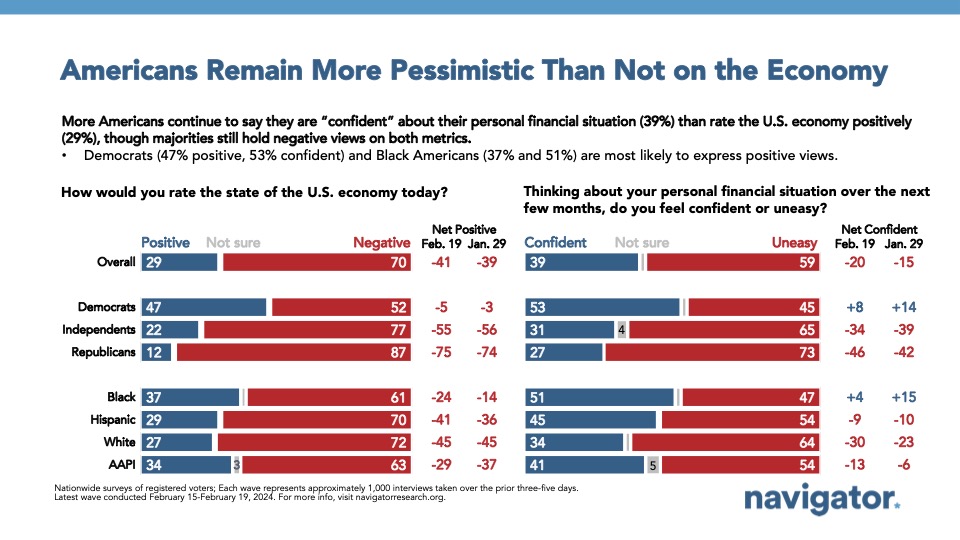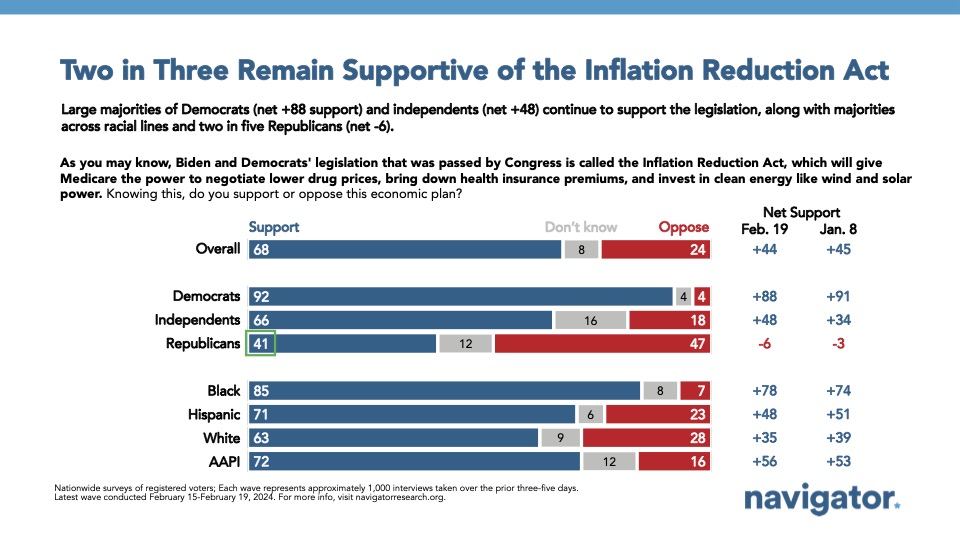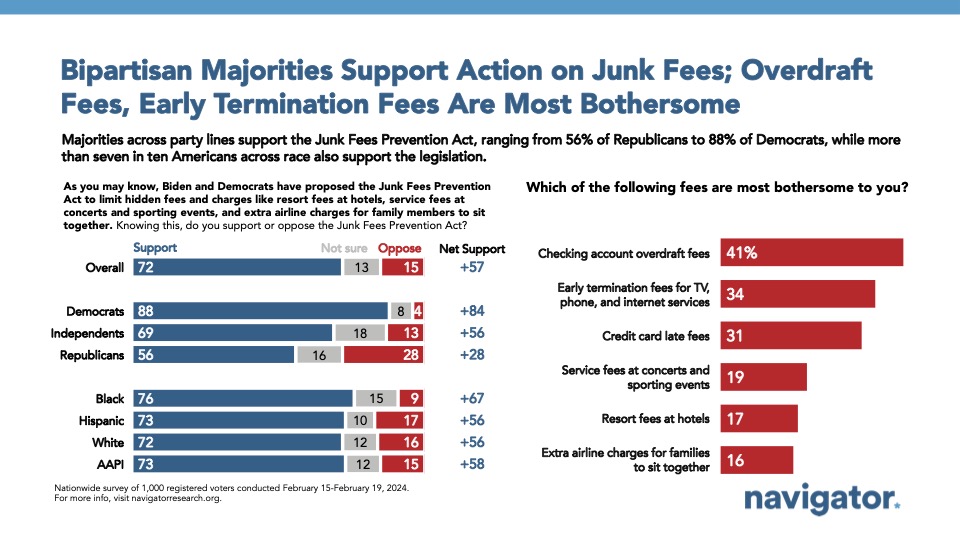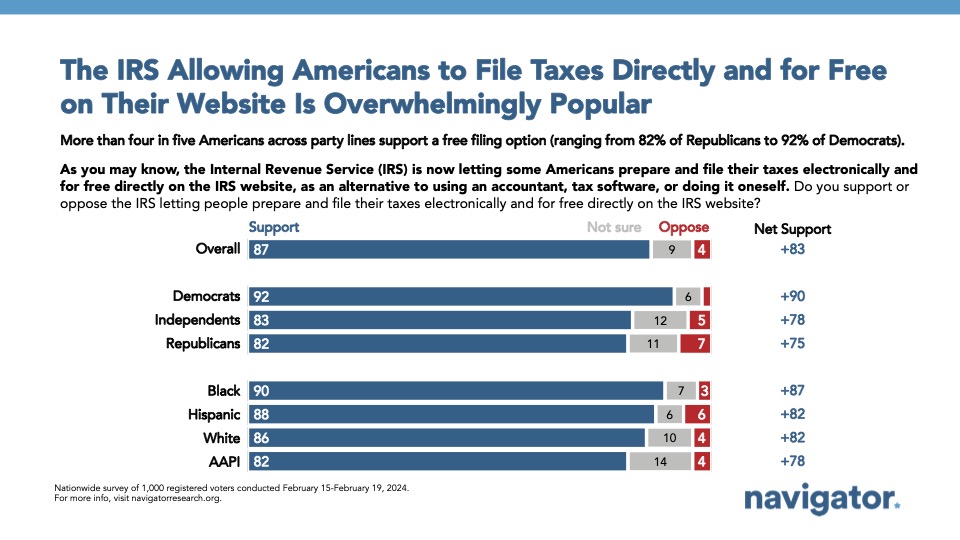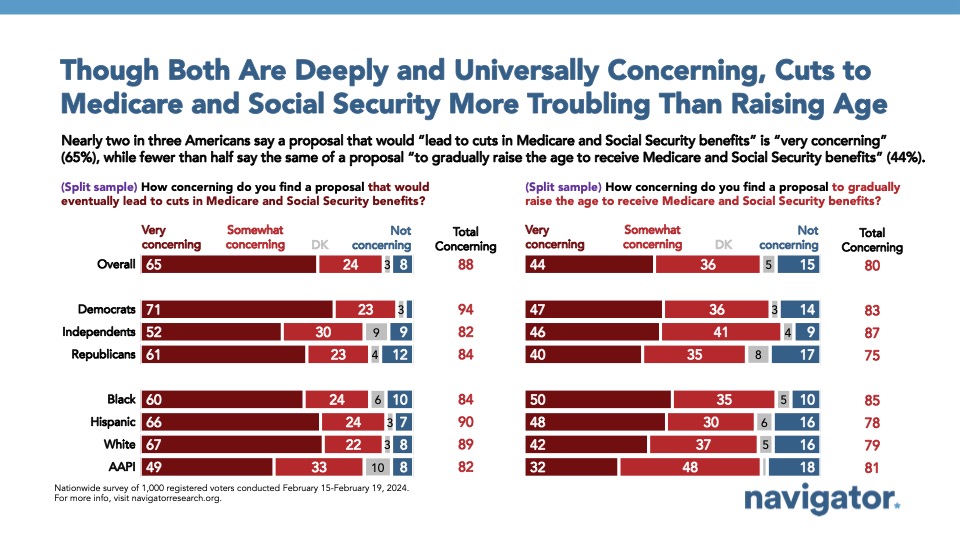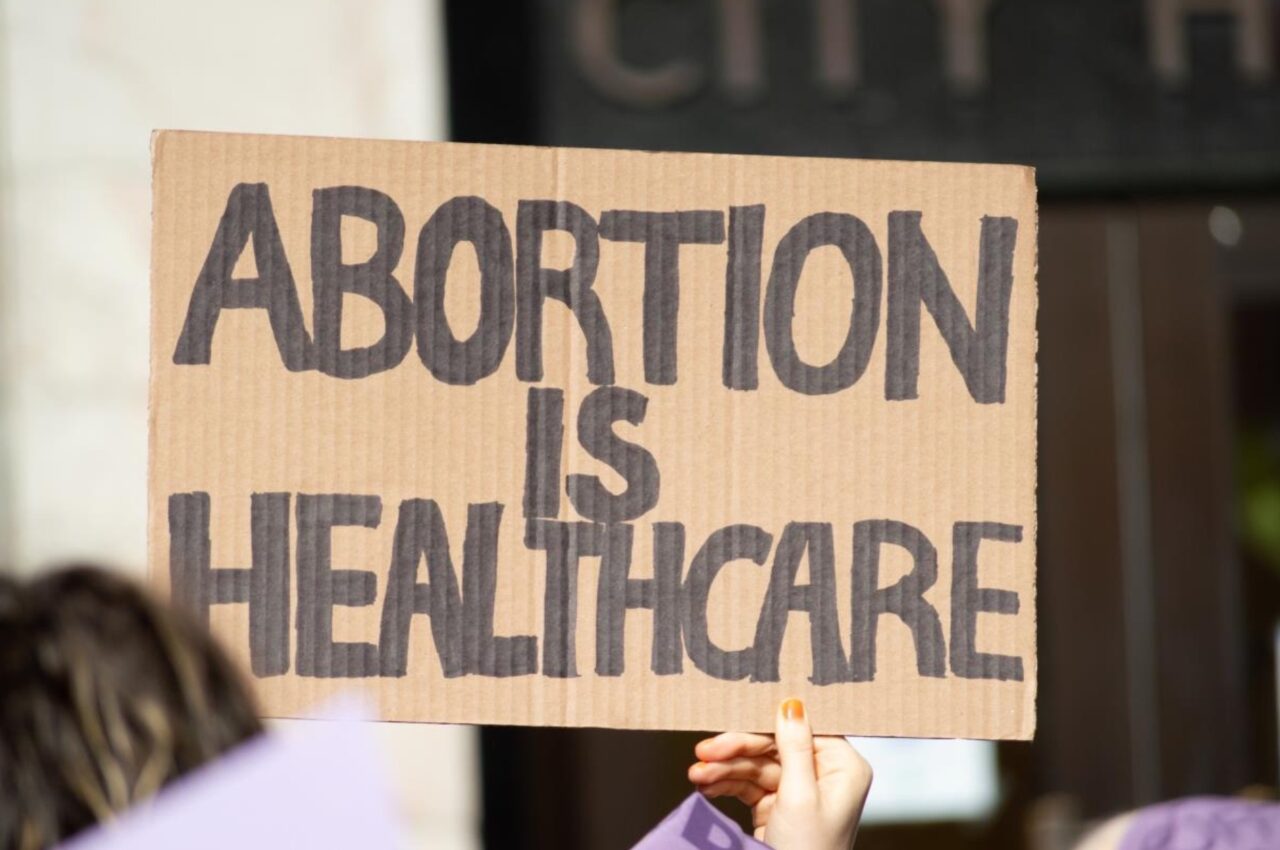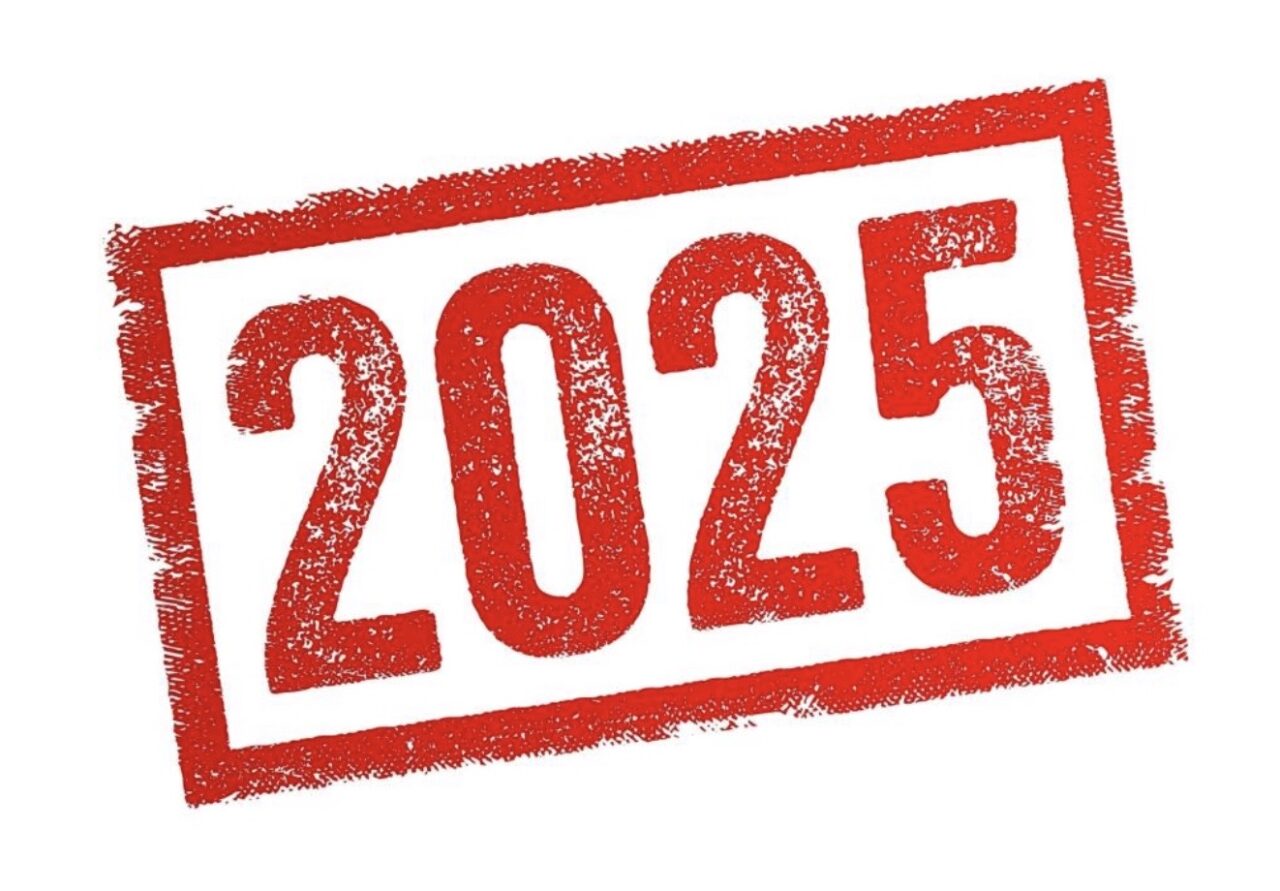Poll: Personal Finances
This Navigator Research report contains polling data on the latest perceptions of the economy, as well as support for the Inflation Reduction Act, congressional action on junk fee prevention, and the free IRS tax filing systems.
Americans remain pessimistic about the state of the U.S. economy.
Seven in ten Americans have a negative perception of the national economy (70 percent) and three in five are uneasy about their personal financial situation (59 percent). Negative economic sentiment is nearly identical to this time last year when 72 percent rated the economy negatively and 57 percent said they felt uneasy about their personal financial situation. More than three in four Americans under the age of 35 say they are uneasy about their personal financial situation (78 percent), as well as over four in five Americans who are unfavorable to both Biden and Trump (87 percent).
- Women are more uneasy about their personal financial situation and the national economy compared to men, with three in four women reporting having a negative perception of the economy (75 percent) compared to two in three men (64 percent). Women are more uneasy than confident about their personal financial situation by 30 points (34 percent confident – 64 percent uneasy) compared to only 9 points more uneasy among men (45 percent confident – 54 percent uneasy).
A range of Biden administration policies, like the Inflation Reduction Act and Junk Fees Prevention Act, are broadly popular.
Two in three Americans remain supportive of the Inflation Reduction Act in its entirety (net +44; 68 percent support – 24 percent oppose), retaining consistent support throughout Navigator’s polling since August. Support includes 72 percent of Democrats, 66 percent of independents, 41 percent of Republicans, 78 percent of Americans under the age of 35, and 74 percent of Americans who are unfavorable to both Trump and Biden. 85 percent of Black Americans, 72 percent of Asian Americans and Pacific Islanders, and 71 percent of Hispanic Americans are also supportive of the Inflation Reduction Act
- Seven in ten Americans support Biden and Democrats’ proposed Junk Fees Prevention Act, a proposal to limit hidden fees and charges like resort fees at hotels, service fees at concerts and sporting events, and extra airline charges for family members to sit together (net +57; 72 percent support – 15 percent oppose), including 88 percent of Democrats, nearly seven in ten independents (69 percent), and a majority of Republicans (56 percent). Checking account overdraft fees are the most bothersome for Americans (41 percent), followed by early termination fees for TV, phone, and internet services (34 percent) and overdue credit card fees as the most bothersome (31 percent).
The IRS allowing Americans to file taxes directly and freely on their website, which was one of the policies in the Inflation Reduction Act, is broadly popular across party lines.
Nearly nine in ten Americans support the IRS allowing Americans to file taxes directly and for free on their website (net + 83 points; 87 percent support – 4 percent oppose), including a majority of Americans who “strongly” support it (57 percent). 92 percent of Democrats, 83 percent of independents, and 82 percent of Republicans say they support the IRS allowing Americans to file taxes directly and for free on their website.
- Three in five Americans find it convincing that “Biden and Democrats in Congress are cracking down on wealthy tax cheats by increasing the enforcement of tax laws to hold them accountable and by closing tax loophole, which will raise $561 billion in revenue over the next ten years” (net +30; 59 percent convincing – 29 percent not convincing), including a majority of independents who find it convincing (54 percent).
Cuts to Medicare and Social Security benefits are more troubling than gradually raising the age to receive benefits.
Bonus finding: Though any approaches to weakening Medicare and Social Security are deeply concerning to at least four in five Americans, a “proposal that would eventually lead to cuts” in Medicare and Social Security is more concerning (88 percent, including 65 percent who find it “very” concerning) than a proposal “to gradually raise the age to receive” Medicare and Social Security benefits (80 percent), with a significantly smaller 44 percent share who are “very” concerned about this.
About The Study
Global Strategy Group conducted public opinion surveys among a sample of 1,000 registered voters from February 15-February 19, 2024. 100 additional interviews were conducted among Hispanic voters. 75 additional interviews were conducted among Asian American and Pacific Islander voters. 100 additional interviews were conducted among African American voters. 100 additional interviews were conducted among independent voters. The survey was conducted online, recruiting respondents from an opt-in online panel vendor. Respondents were verified against a voter file and special care was taken to ensure the demographic composition of our sample matched that of the national registered voter population across a variety of demographic variables.

